Farm Bureau applauds Congress for full passage of Continuing Resolution
The bill includes short-term spending, disaster aid and a farm bill extension.
Read MoreDrought conditions in 2024 have strained farmers, impacted crops and put stress on resources across much of the state, particularly in the southern and eastern portions of Ohio. To help alleviate some of the financial stress being felt in the aftermath of the drought, Ohio Farm Bureau testified as a proponent of Ohio House Bill 683 earlier this week. This legislation would provide meaningful relief by investing $10 million in the counties that were most severely impacted by relentless hot and dry conditions this past summer. This funding will support drought mitigation efforts, offering vital resources to counties affected by feed and water shortages.
Ohio Farm Bureau Organization Director Ashley Kasler testified before the Ohio House Finance Committee on Wednesday to share her experience and challenges through the drought. She serves members in Athens-Meigs, Gallia, and Lawrence counties, as well as works with her husband’s family on their fourth-generation cow-calf/hay operation.
“Most operations ran through their winter hay stashes by mid-summer instead of spring of next year,” Kasler explained to the committee. “To put this into perspective for those not as familiar with a cow-calf operation, we would normally start feeding hay around mid-November, and we have been feeding it since mid-June. Normally for those needing to buy round bales, you would pay $40-45 per bale, it’s now close to $80-85.”
Kasler told the committee that the water table not receiving much moisture this winter is going to make for a very difficult and challenging spring and may have impacts throughout 2025.
“Producers have already started to sell livestock to take the stress off of their fields and the stress off their pocketbooks,” Kasler said. “Farm stress has been ramped up even more in these unprecedented times. Farmers are trying to find any option they can to keep their legacy alive.”
Also adding testimony on behalf of Ohio Farm Bureau was the organization’s Director of State Policy Evan Callicoat. He stressed how this bill will help provide many farmers stability as they continue to deal with the impacts of this year’s drought, and they will for years to come.
“For an industry that consistently runs on thin margins and is literally at the whim of nature, this money has the potential to save family farms. This is not hyperbole but the truth. Farm income is projected to be down nearly 25% across the country this year. The drought has forced many multigenerational family farms to sell off part of their operation and passion just to put food on the table.”
Testimony needed
In addition to the testimony provided in support of HB 683, Ohio Farm Bureau is asking members to help move this legislation forward. To tell your real-life story about the challenges the summer of 2024 dealt to you, reach out to Ohio Farm Bureau Director of State Policy and Grassroots Engagement Whittney Bowers at [email protected], to emphasize why this funding is vital to those hit hardest.


The bill includes short-term spending, disaster aid and a farm bill extension.
Read More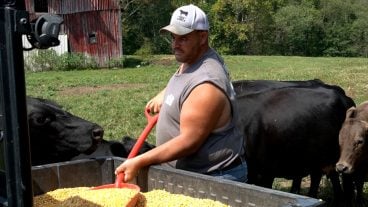
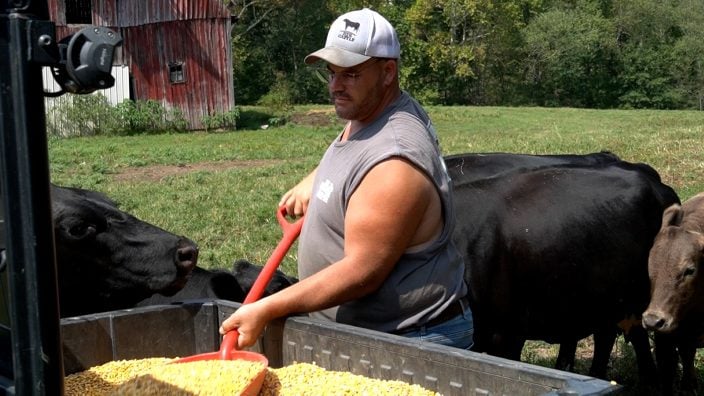
The disaster relief funding disbursement will be overseen by the Ohio Department of Agriculture and administered through local soil & water districts.
Read More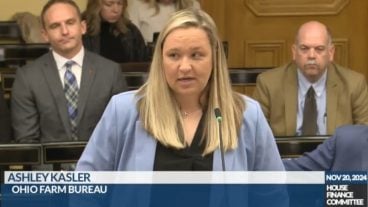
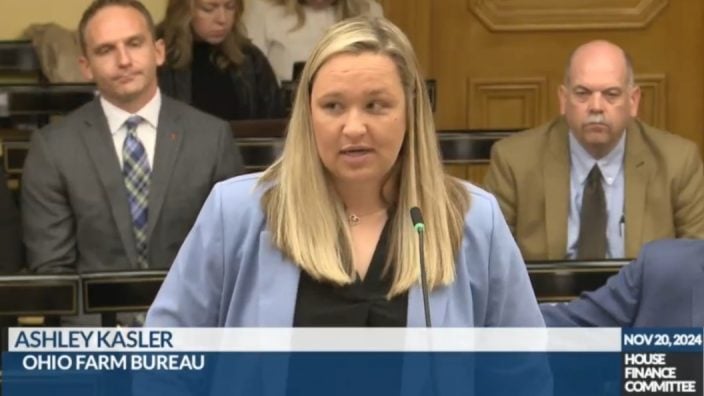
HB 683 would provide meaningful relief by investing $10 million in the counties that were most severely impacted by relentless hot and dry conditions this past summer.
Read More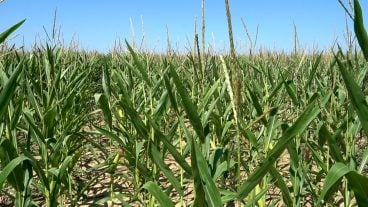
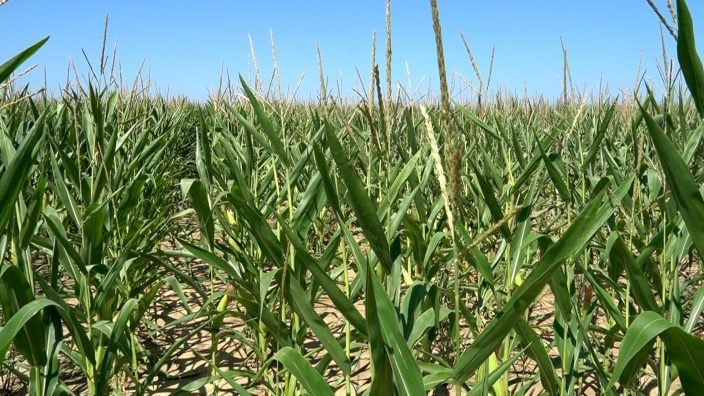
Here are some tips for those agricultural producers being impacted by the drought that have not worked with the USDA FSA office before.
Read More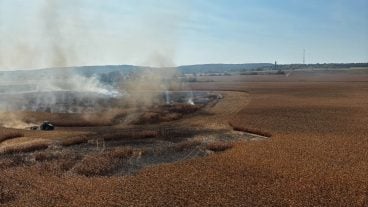
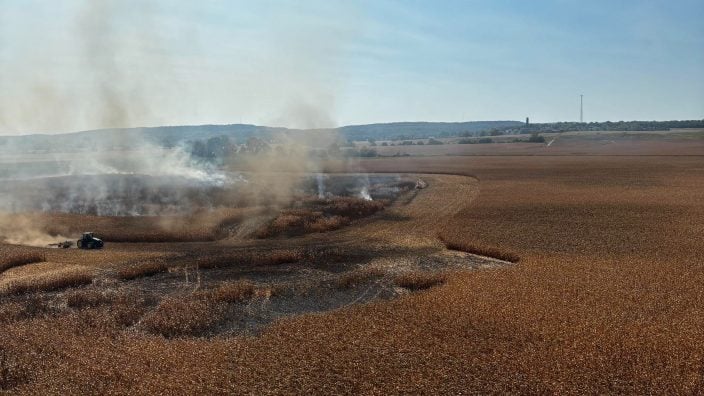
On this Ohio Farm Bureau Podcast Special, we cover many aspects of the drought that the majority of Ohio is dealing with.
Read More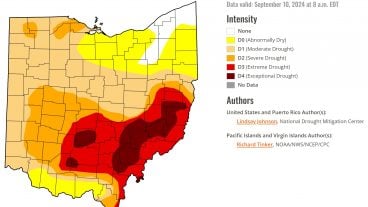
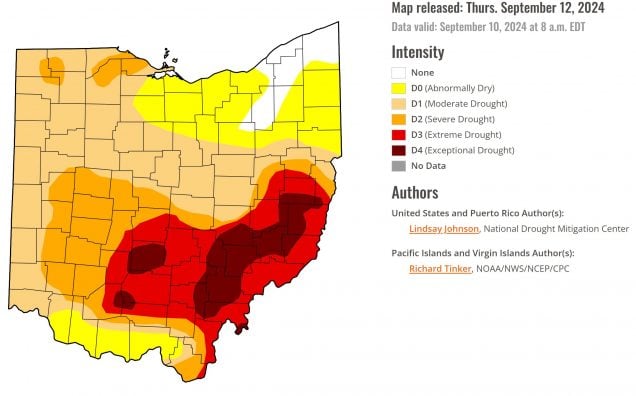
If you have been impacted by the drought, please contact your local Farm Service Agency.
Read More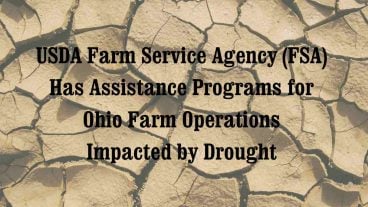
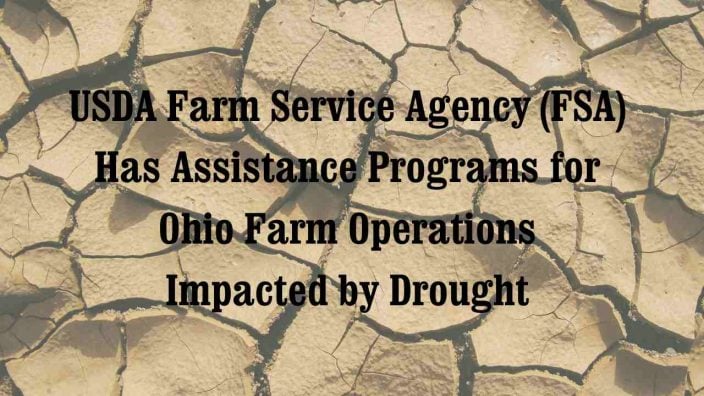
Producers are encouraged to contact their local Farm Service Agency office to explore program which they may be eligible.
Read More

For livestock producers in drought-stricken areas of Ohio, measures used to keep animals healthy and productive have been in the works for some weeks.
Read More